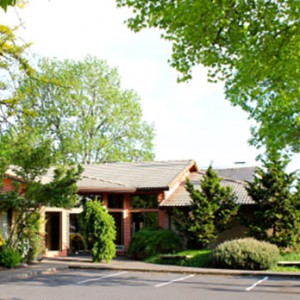Naturopathic Medicine: Where Health and Lifestyle Converge

We naturopathic doctors often get asked to define the difference between naturopathy and what is commonly termed as ‘traditional medicine.’ The question is an interesting one, given that what we call traditional medicine is more modern and less traditional than the kinds of treatments naturopathic medicine offers. Be that as it may, there are many distinct differences between the two.
Perhaps the most profound difference between naturopathic and traditional medicine is how wellness is viewed. Naturopathic physicians tend to see individual wellness as achievable, in most cases, by managing one’s lifestyle in order to allow the body to do what it does naturally. Traditional medicine tends to view wellness apart from lifestyle; it tends to see wellness as something that is not necessarily attainable outside of external influences.
The current healthcare model used largely by physicians is the disease model, in which doctors diagnose the disease and then treat it’s symptoms and feel accomplished when a patient’s symptoms decrease or resolve. In a naturopathic model, focusing on reversing the disease process in addition to improving how the body functions can in fact alleviate symptoms as well as the cause of the disease.
The differing viewpoints of wellness have a profound impact on how practitioners of both kinds of medicine treat their patients. The naturopathic practitioner is more likely to look at a patient’s lifestyle in order to determine what changes can be made to improve overall health. When appropriate, more natural treatments might be recommended to encourage the body to heal itself and begin to function well again. Wellness is obtained with the body can function properly and is in balance.
This is not to say that naturopaths make no room for prescription medications, surgeries, and the like. Rather, it is to say that naturopathic medicine prefers to utilize these external measures only when more natural healing methods are not possible. For example, the naturopathic practitioner would not eschew traditional surgery to repair a shattered broken leg after a car accident. He or she may recommend a different approach to post-surgical pain management, though.
Lifestyle Choices Have Health Implications
At the very core of naturopathic medicine is an understanding that lifestyle choices have health implications. The simple act of daily movement is a great example. People who are largely inactive tend to have more health problems ranging from hypertension to a higher risk of developing things such as diabetes and heart disease.
Naturopaths understand that our bodies were built to move. Our joints have built-in hinges with natural lubrication; the spine is elastic enough to bend and move; our muscles have the ability to
control even the finest movements to an exceptional degree. With the infrastructure necessary for movement built into the human body, remaining largely inactive is counterproductive to our design. Remaining inactive carries with it some unhealthy consequences.
Naturopathic physicians will look at activity levels as part of an overall treatment for patients. Those who are fairly inactive will be encouraged to change their lifestyles accordingly; those who are fairly active but still suffer from certain health conditions will be evaluated for other contributing factors. In the end, the naturopath’s goal is to understand how lifestyle choices are affecting the patient’s health so that helpful recommendations can be offered.
Treatments to Enhance Wellness
Another obvious difference between naturopathic and traditional medicine are the preferred
treatments. Naturopathic practitioners prefer treatments that enhance the ability of the body to heal itself where traditional medicine tends to focus on alleviating symptoms more than anything else.
For example, practitioners of both kinds of medicine understand how much diet affects individual health. The naturopathic practitioner takes that understanding to the next level by using good nutrition as a tool for healing. Patients are educated about nutrition and encouraged to modify their eating habits to promote good health.
In the end, naturopathic medicine differs from traditional medicine in its overall approach to wellness. Naturopathy is more about utilizing the body’s natural functions and responses to improve wellness, instead of first turning to external procedures and medications.









